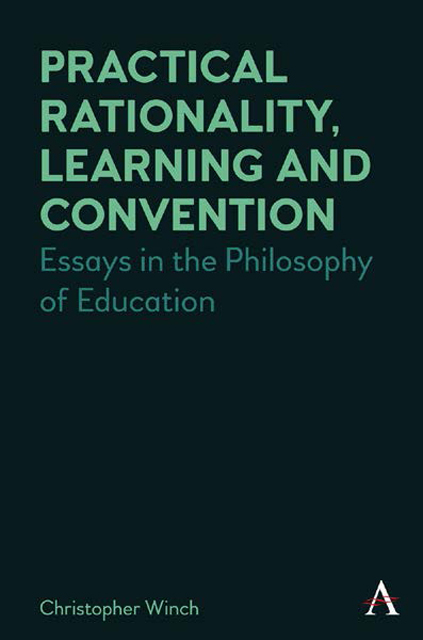Chapter Six - Vocational Education, Knowing How and Intelligence Concepts
Published online by Cambridge University Press: 09 December 2022
Summary
Introduction
Debates about the nature of practical knowledge and its relationship with declarative knowledge have, over the last ten years, been lively. Relatively little has, however, been written about the educational implications of these debates, particularly about the educational implications of the two broad families of positions known respectively as ‘Intellectualism’ and ‘Anti-intellectualism’. The aim of this paper is, first, to offer a qualified defence of anti-intellectualism about practical knowledge and, second, to argue that the adoption of anti-intellectualism offers the best opportunity for constructing a rationale for vocational and professional education that gives broad forms of agency, autonomous action and the pursuit of excellence their due place in such programmes.
A recent paper by Jason Stanley extends the defence of the view that knowing how is best seen a species of knowing that presented earlier in Stanley and Williamson (SW) (Stanley, 2010; Stanley and Williamson, 2001). SW's claim was explicitly made as a response to the knowing how/knowing that distinction made by Ryle (1945, 1949). SW (2001) and Stanley (2010) attempt to show that the underlying grammatical similarities between attributions of knowledge that and knowledge how strongly suggest that the analysis of the latter should be in terms of the former. This is a direct consequence of the intellectualist thesis that all knowledge is a form of propositional knowledge. This paper examines that claim in relation to a central feature of Ryle's analysis, that talk about knowing how is intimately bound up with the use of what Ryle calls ‘intelligence epithets’ (e.g. 1949: 25). Neither SW nor Stanley (2010) pay much, if any, attention to this aspect of Ryle's analysis, yet it is central to his account of the distinctiveness of knowing how. Without examining this claim it is hard to see how Ryle's account of knowing how can be so easily dismissed, particularly if one wishes, as Stanley does, to point to the underlying similarities between propositional knowledge and knowing how.
Intelligence Epithets
Ryle's (1949) discussion opens with the claim that when intelligence epithets are applied to someone, we attribute ability to do something to them, not knowledge or ignorance (1949: 27).
- Type
- Chapter
- Information
- Practical Rationality, Learning and ConventionEssays in the Philosophy of Education, pp. 71 - 86Publisher: Anthem PressPrint publication year: 2022

